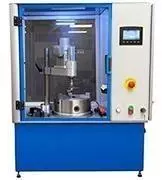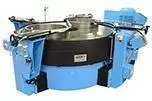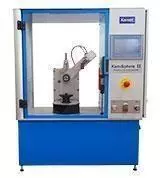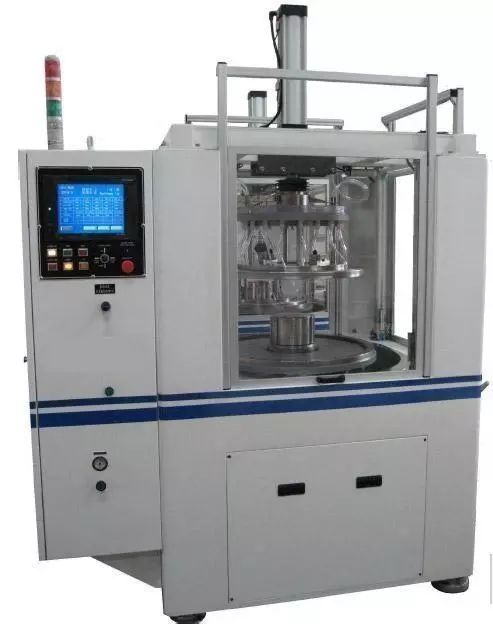Lapping Machines
Kemet Flat Lapping and Polishing Systems offer the most efficient and reliable method of producing precision flat polished surfaces. Our flat lapping and polishing machines are at the forefront of today’s advanced lapping technology, especially when used with Kemet Diamond products. Kemet lapping machine are available in fixed and variable speed either open face or pneumatic lift and are built strictly to the latest EEC standards.
Flat Lapping and Polishing Machines are available in a range of sizes from 200mm diameter to 3 metres diameter. As a general guide, the smaller bench mounted Machines are for lapping smaller components and light duty applications, whereas the larger Machines are more suited to lapping the larger components, with those in the middle range being commonly used for production lapping where large numbers of pieces are involved.
Flat Lapping Machines are usually used in conjunction with conditioning or control rings. These rings run on the surface of the Lapping or Polishing Plate which contain and give drive to the pieces being lapped. By having chamfers on their outer edges, the rings help to impregnate the Lapping Plate with the diamond abrasive. The rings can also be used to help control the lapping plate flatness. The standard number of conditioning rings used is three but four rings are common on some larger Machines. For special applications, however, special ring sizes can be used.
Lapping Machine Capacity Calculator

Over 35 years of superior service
Custom Built Lapping Machines
A variety of custom built Precision Diamond Flat Lapping and Polishing machines are available to meet your needs. Contact the sales desk for more information on +65 6482 0990.
Benefits of Kemet's Advanced Lapping Technology
Kemet offers a comprehensive range of standard lapping and polishing systems for use across all industrial sectors. Special purpose machines can also be developed for specific applications.
- Significant reduction in lapping costs
- Cleaner environment conditions
- Reduced inspection requirements
- One operation surface finish
- Semi skilled operation
- Faster material removal
- Faster polishing process
- Pre set parameters
- Reduced rejections
- Optimum geometry and surface finish
- Easier product cleaning
- Better utilization of machine time









